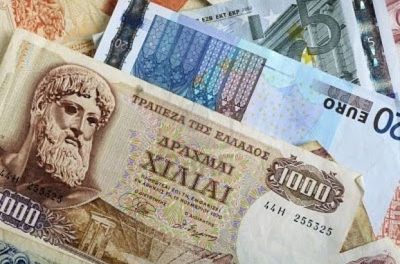The Economist
WHAT a difference a year makes. Last May Greece seemed to be heading out of the euro. Lagging reforms, political in-fighting and violent protests had worn out creditors’ patience. An election failed to produce a clear winner. Athenians stashed euros in safety-deposit boxes and under mattresses amid fears of instability and a chaotic return to the drachma.
Greece is still in recession, but recovery could be around the corner. The threat of “Grexit” from the euro has receded. Hedge funds are snapping up sovereign bonds and bank shares; one has made a bricks-and-mortar investment in a Greek energy company. Bail-out funds from the European Union and IMF are flowing in as reform “milestones” are reached. Greece expects to record a small primary budget surplus (ie, before interest) of about 0.5% of GDP. The economy should grow a little in 2014 and by more than 2% in 2015.
This summer should see a record 17m tourists crowding Greek beaches. Bookings from Germany and Russia are soaring, say travel agents. A projected rise of €1.5 billion-2 billion in tourist revenues will give the budget a boost, even though many hoteliers are struggling to service bank debts. Greek contractors expect to resume work in the autumn on €6 billion of EU-financed motorway projects stalled since the crisis. They could create 30,000 jobs.
Privatisation is under way after several false starts. Opap, the state gambling monopoly, has been sold for €712m to a consortium of Greek and east European investors. Gazprom is expected to bid for Depa, the natural-gas monopoly. Sintez, a private Russian energy company, and Socar, Azerbaijan’s state gas producer, are vying for the gas distributor Desfa.
Antonis Samaras, the centre-right prime minister, sounded confident on a visit to Beijing that Chinese investment is coming. Cosco, a state-controlled shipping operator that leases a container terminal at Athens’s port of Piraeus, wants to buy Olp, Piraeus’s port owner. Some consultants bemoan a lack of interest from the EU. But one says that, since its partial default last year, “Greece has become a frontier market that is too risky for western companies.”
Mr Samaras has managed to keep his awkward coalition under control. The PanHellenic Socialist Movement (Pasok) and the Democratic Left have even accepted deep cuts in health and welfare spending and now job losses for civil servants. They put the blame on the EU and the IMF. “The troika (the EU, European Central Bank and IMF) hold all the cards—you can’t negotiate with them,” said Antonis Manitakis, the civil-service minister, a Democratic Left appointee, after agreeing to cut 25,000 public-sector jobs by the end of the year. Street protests have faded.
Yet the crisis has left a terrible legacy. Five-and-a-half years of recession have wiped out over 25% of output and more than a million private-sector jobs. Tens of thousands of retailers and small manufacturers have gone under. Unemployment is above 27%, a record; for youths it is over 60%. With jobs disappearing, emigration by skilled young Greeks is growing; more than 34,000 went to Germany last year, a 43% increase on 2011. Poverty has become widespread, especially in urban areas. The suicide rate has doubled in three years.
Yannis Stournaras, the finance minister, says Greece is two-thirds through a €13.5 billion programme of spending cuts and tax rises, but the remaining one-third will be tough. “It’s like running a marathon: you’ve completed most of the distance, but you’re starting to get tired.”



















